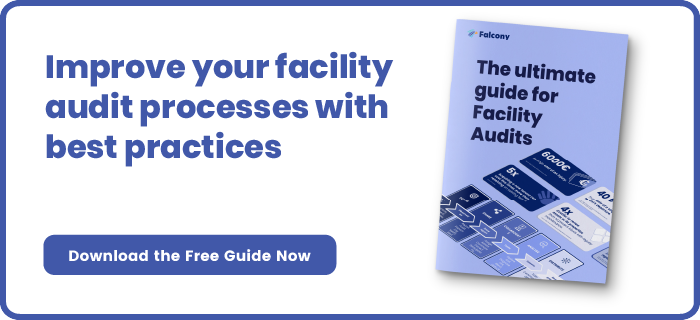Reliability-Centered Maintenance (RCM) in Urban Mobility
In the realm of public transportation and urban mobility, ensuring the smooth and efficient operation of systems is paramount.
Reliability-Centered Maintenance (RCM) has emerged as a pivotal strategy to enhance the dependability and performance of these systems. By focusing on the reliability and safety of assets, RCM aims to optimise maintenance practices, reduce costs, and improve service quality. This blog explores the principles of RCM and its application in public transportation and urban mobility.
Understanding Reliability-Centered Maintenance (RCM)
Reliability-Centered Maintenance is a structured approach that determines the most effective maintenance strategy for each asset based on its function, failure modes, and consequences of failure. Developed initially for aviation, RCM has been adapted across various industries due to its effectiveness in ensuring asset reliability and performance.
The core principles of RCM include:
-
Function and Performance Standards: Identifying the primary functions of an asset and the performance standards required to meet operational needs.
-
Failure Modes and Effects: Analysing how assets can fail and the impact of these failures on system performance and safety.
-
Maintenance Strategies: Developing tailored maintenance approaches to address identified failure modes and ensure asset reliability.
-
Continuous Improvement: Regularly reviewing and updating maintenance practices based on performance data and evolving conditions.
RCM in Public Transportation
Public transportation systems, including buses, trains, and trams, are critical to urban mobility. Their reliability directly affects the quality of service and public satisfaction. Implementing RCM in public transportation can lead to significant improvements in system performance and cost efficiency.
-
Enhanced Reliability: By focusing on the most critical failure modes and their impacts, RCM ensures that maintenance efforts are directed towards areas that most affect service delivery. For example, in rail systems, RCM can help prioritise maintenance activities for signalling and track components to prevent disruptions and ensure safety.
-
Optimised Maintenance Scheduling: RCM allows for the optimisation of maintenance schedules by predicting failure patterns and identifying the most effective times for maintenance interventions. This reduces downtime and improves the availability of transportation services.
-
Cost Efficiency: By avoiding unnecessary maintenance activities and focusing resources on high-impact areas, RCM can lead to significant cost savings. For instance, predictive maintenance, a key component of RCM, helps in preventing costly breakdowns and extending the lifespan of assets.
-
Improved Safety and Compliance: In public transportation, safety is paramount. RCM helps in identifying potential safety issues before they escalate, ensuring that all maintenance activities comply with regulatory standards and enhance overall safety.
RCM in Urban Mobility
Urban mobility encompasses a range of transportation options, including ride-sharing services, e-scooters, and bike-sharing schemes. The principles of RCM can be adapted to optimise the maintenance of these diverse assets.
-
Tailored Maintenance for Diverse Assets: Urban mobility involves various types of vehicles and infrastructure. RCM enables the development of maintenance strategies tailored to the specific needs and failure modes of each asset type, from electric scooters to car-sharing fleets.
-
Data-Driven Decisions: Modern urban mobility solutions often rely on data and technology. RCM leverages data analytics to predict failures and optimise maintenance schedules. For example, telematics data from e-scooters can provide insights into wear and tear, allowing for proactive maintenance.
-
Sustainability and Efficiency: As cities move towards more sustainable transportation options, RCM supports the efficient use of resources by focusing on preventive and predictive maintenance. This aligns with broader sustainability goals by reducing waste and extending the lifecycle of assets.
-
Enhanced User Experience: Reliable urban mobility options contribute to a better user experience. By minimising downtime and ensuring that vehicles are in optimal condition, RCM helps in delivering a more reliable and satisfactory service to users.
Challenges and Considerations
While RCM offers numerous benefits, its implementation in public transportation and urban mobility can present challenges:
-
Data Collection and Analysis: Effective RCM relies on accurate data. Collecting and analysing data from various assets can be resource-intensive and requires robust systems and processes.
-
Skill Requirements: Implementing RCM requires skilled personnel who are trained in RCM principles and techniques. This may necessitate additional training or hiring of specialised staff.
-
Integration with Existing Systems: Integrating RCM with existing maintenance practices and systems can be complex. It requires careful planning and coordination to ensure a smooth transition.
-
Continuous Monitoring and Adaptation: RCM is not a one-time process but requires ongoing monitoring and adaptation. Regular reviews and updates are essential to keep maintenance strategies aligned with changing conditions and technologies.
Conclusion
Reliability-Centered Maintenance offers a robust framework for enhancing the reliability and performance of public transportation and urban mobility systems. By focusing on the critical functions and failure modes of assets, RCM helps in optimising maintenance practices, reducing costs, and improving service quality. As cities continue to evolve and expand their transportation networks, the adoption of RCM will be crucial in ensuring that these systems remain reliable, efficient, and capable of meeting the demands of modern urban mobility.
Are you looking for a tool to enable, record and monitor RCM or other quality processes in your organisation? Falcony | Platform ticks all the boxes for reporting, investigation management, is easy to customise, enables real dialogue and is a lot more.
We are building the world's first operational involvement platform. Our mission is to make the process of finding, sharing, fixing and learning from issues and observations as easy as thinking about them and as rewarding as being remembered for them.
By doing this, we are making work more meaningful for all parties involved.
More information at falcony.io.

Related posts
Understanding Reliability-Centered Maintenance (RCM)
In the world of industrial maintenance and asset management, ensuring the reliability of equipment...
Reliability-Centered Maintenance (RCM) in Amusement Parks
Amusement parks are synonymous with joy, excitement, and unforgettable memories. Behind the scenes,...
Reliability-Centered Maintenance (RCM) in Data Centers
In the digital age, data centers stand as the backbone of modern business operations, housing vast...





